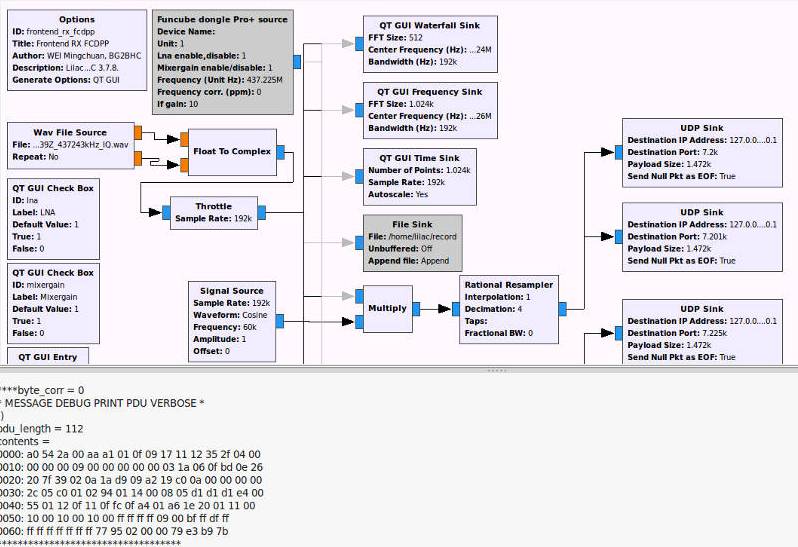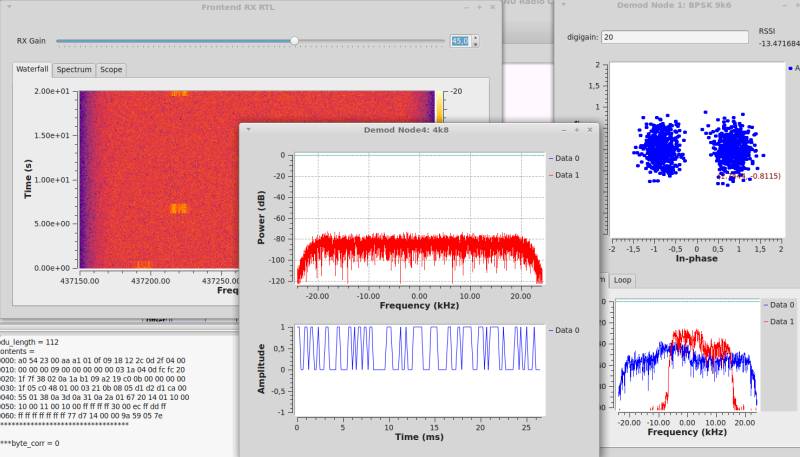LilacSat-2 Telemetry 23-09-2015 17:10 UTC
When you want to decode the LilacSat-2 telemetry you have to dive in to the world of *nix and GNURadio. Now I do have a lot of experience with *nix but GNURadio is every time a difficult road. But Persistence pays off.
Decoded packet:
****byte_corr = 0 * MESSAGE DEBUG PRINT PDU VERBOSE * () pdu_length = 112 contents = 0000: a2 54 39 00 bb a1 01 0f 09 17 11 10 29 5f 00 01 0010: 00 00 00 09 00 00 00 00 00 03 1a 05 0f cb 13 4c 0020: 26 7f 39 02 0a 1a b3 09 a2 19 c0 0a 00 00 00 00 0030: 20 05 c0 00 00 55 00 09 05 08 05 d0 d0 d0 e2 00 0040: 55 01 ec 0e 37 0f fc 0f 99 01 9c 1e 20 01 11 00 0050: 10 00 10 00 10 00 ff 3e 4d cb ff 13 f8 ff 12 00 0060: 02 00 a6 00 bd 80 31 01 00 00 00 00 aa 49 f5 8d
A brief summery:
I made with the help of SDR# and my FUNcube Dongle Pro+ SDR receiver an IQ file at 23-09-2015 17:10 UTC. Installed GNURadio with the help of the following script www.sbrac.org/files/build-gnuradio on Linux Mint.
When this was successful I cloned the gr-lilacsat source from github and compiled the gr-lilacsat source. After that I changed the lilacsat GNURadio front-end so it would accept an SDRSharp IQ recording as input.

After that only some small changes to get the front-end up and running and connect it via localhost udp sources to the BPSK 9600 demodulator block.
I got the following confirmation: BG2BHC Great! Length is OK and the 5th and 6th bytes aa/bb a1 means that the packets are beacon packets created by OBC A/B
Second decode but this time real time with a RTL-SDR dongle. We are getting somewhere.

Download the IQ recording so you can test with your GNURadio environment
